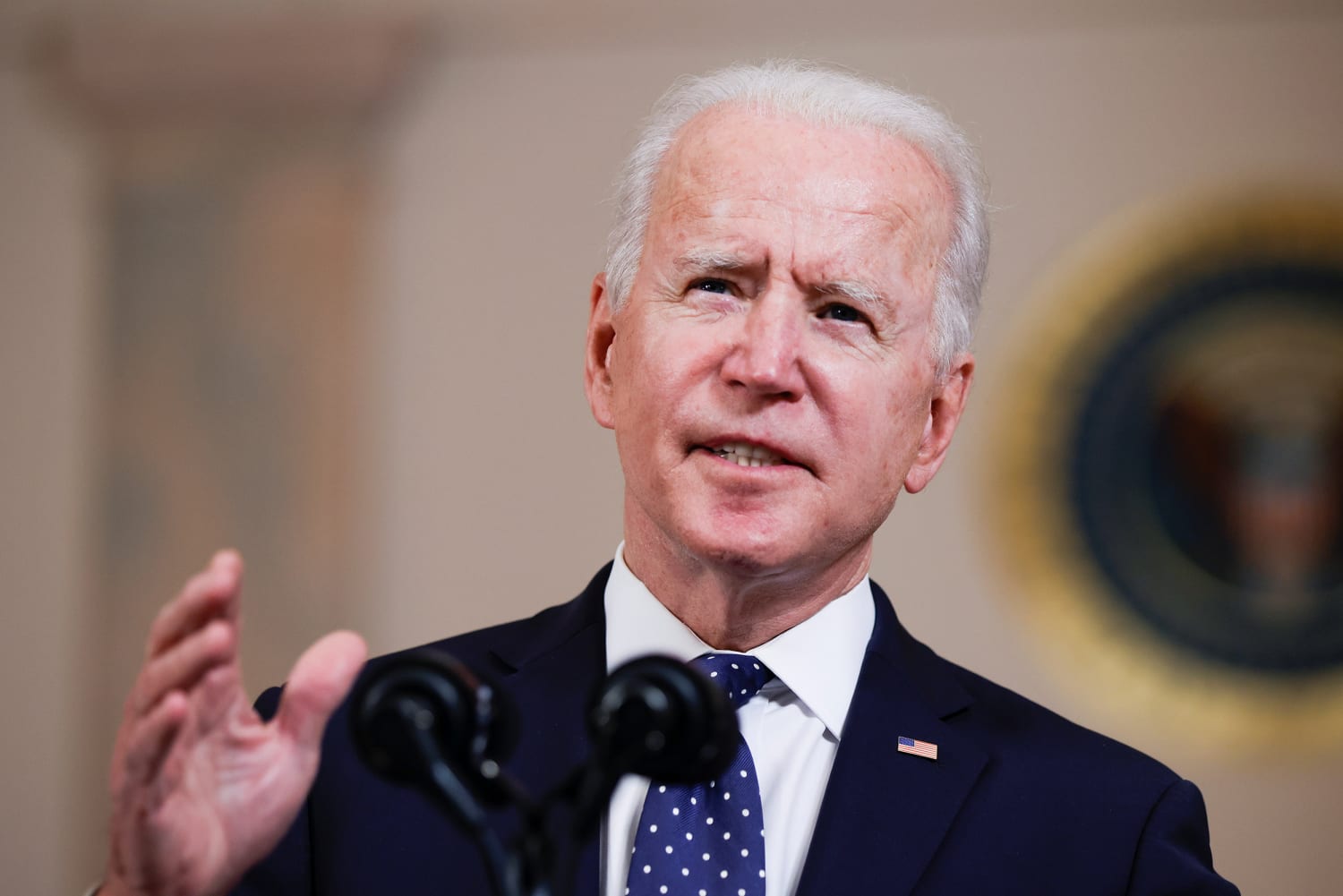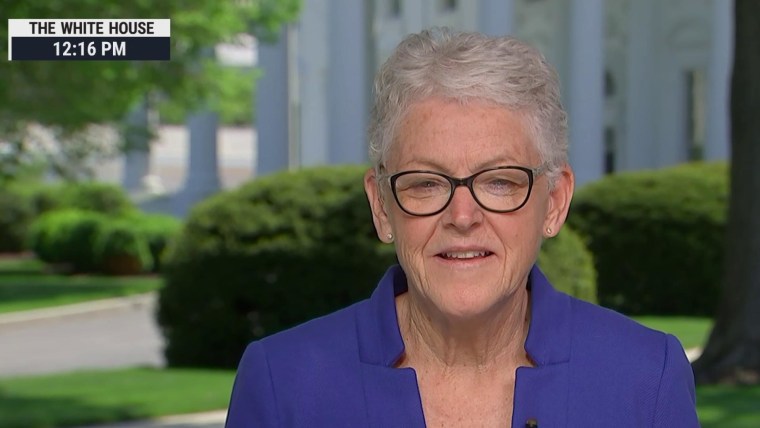The U.S. will aim to halve greenhouse gas emissions by 2030 as part of its new commitment to the Paris climate agreement, President Joe Biden will announce Thursday.
Biden will make the pledge, called the Nationally Determined Contribution, when he speaks at a two-day virtual climate summit attended by dozens of world leaders Thursday morning, the White House said. Biden rejoined the 2015 climate pact in February, reversing a decision by President Donald Trump to withdraw the U.S. from the global coalition to curb carbon emissions.
U.S. emissions of heat-trapping greenhouse gases plunged last year, but that was an anomaly owing to the coronavirus pandemic, which put the brakes on large segments of the economy. As the country rebounds, emissions are expected to rise once again, and the Biden administration is racing to find ways to put the U.S. on track to meet even more ambitious targets that scientists say are needed to avert the worst effects of global warming.
The administration has been under immense pressure from environmental groups and climate scientists to commit to an emissions cut of at least 50 percent, compared to 2005 levels. Halving emissions globally by 2030 is seen as necessary if the world is to meet U.N. goals to limit global warming to 1.5 degrees Celsius.
The most ambitious emissions-cutting goal the U.S. has set to date, Biden’s expected pledge of a cut of 50 percent to 52 percent, is still likely to face criticism from environmental groups that say it falls short of restoring the U.S. to a position of leadership.
The European Union, for example, has pledged at least a 55 percent cut by 2030, while the U.K. has promised 68 percent by 2030 and a whopping 78 percent by 2035.
The U.S. is pressing the world’s largest emitters, all of whom were invited to the summit, to make equally ambitious cuts. But after Trump abandoned the Paris Agreement, other countries are closely scrutinizing U.S. actions to see whether Washington will back up its tough talk with action and whether that action will be politically durable.
Biden administration officials told reporters in a briefing before the announcement that the U.S. will also consider a “carbon border adjustment,” better known as a carbon tariff, in which the U.S. would tax imports from countries that don’t have similar emissions controls. Although the U.S. trade representative’s office under Biden has floated the idea before, others in the administration, including climate envoy John Kerry, have warned against it.
The previous U.S. pledge for the Paris Agreement, set by President Barack Obama before Trump withdrew the U.S. from the deal, was a cut of 26 percent to 28 percent by 2025. As part of the Paris accord, which is not legally binding, countries are supposed to regularly update their pledges, with 2030 goals due ahead of a U.N. climate summit in November in Scotland.
Biden, meanwhile, has set an overarching goal of net-zero greenhouse gas emissions by 2050.
Yet his own administration has chided other countries for setting impressive-sounding goals for decades in the future while doing little in the short term to actually change any behavior.
Under pressure to spell out how it will achieve the intended cuts, the White House argued that it can achieve a 50 percent cut by the end of the decade by targeting the biggest-emitting sectors, including zeroing out emissions from power plants by 2035, boosting energy efficiency for homes and businesses, cutting tailpipe emissions through regulations and incentives for electric vehicles, and expanding “carbon sinks,” like forests and agriculture.
“We see multiple paths to reaching this goal,” an administration official said.
Biden and Vice President Kamala Harris are set to open the climate summit Thursday, with Secretary of State Antony Blinken and Kerry also participating. World leaders, including Russian President Vladimir Putin and Chinese leader Xi Jinping, will attend virtually.
The summit is expected to start around 8 a.m. ET.
Source: | This article originally belongs to Nbcnews.com










